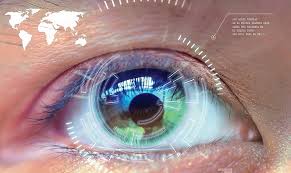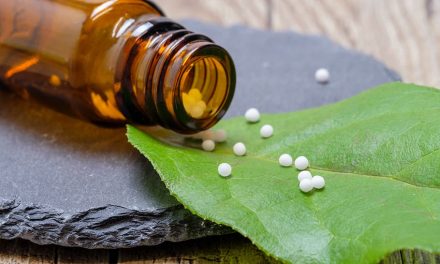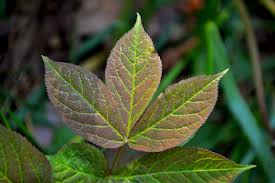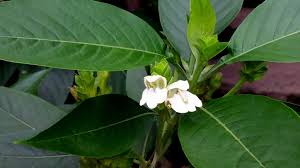J. B. Gregg Custis, M. D., Washington, D. C.
I find that more and more my thoughts dwell upon the present status of homoeopathy in this country and upon the reasons for its decline from its former high estate to the comparative lowly one it is today. Therefore, at the risk of being considered a bore and a man of one idea, for I have said most of this before, I am going to reiterate those things which seem to me important factors in its decline, and I am going to point out what seems to me to be the road back to the heights.
It is admitted that homoeopathy has declined, in fact its funeral oration had been delivered and its memorial services held by our opponents. Luckily, however, for mankind, homoeopathy is not yet dead and not even beyond hope for recovery from its present low ebb. I say, luckily for mankind, because the leaven of homoeopathy, which has already accomplished much for medicine in general because of its influence in bringing about decreased drugging and because of its stimulation of close study of patient and disease, has not yet been able to force the really scientific study of drug action and use upon the medical world. Until that time comes homoeopathy as a separate force, with a separate organization and with an assured, honorable place in the medical world, is needed.
To make sure that this need will be filled we must first take account of our present position, with the reasons therefor, and then apply the remedies.
Homoeopathy has declined. Our schools and institutions are decreasing in numbers and influence. The reasons are not far to seek, but they are hard to acknowledge, for they lie within ourselves, and it is harder to find the beam than the more.
It is not the innuendo, the slights, the half truths, the unfairness of the enemy concerning which we so fondly wail that have caused our present state, for these things were more freely used while homoeopathy was growing than they are today. It is not lack of money, although money is a great asset, which accounts for the loss of our institutions, for they were acquired and developed with money no more accessible than it is at present.
The determining factor in the decline of homoeopathy may be easily enumerated. Our colleges have been largely to blame. More attention is paid to getting the students by the state boards than to teaching homoeopathic medicine and showing them the real superiority of homoeopathic methods over any other in those conditions where homoeopathic methods are indicated. In fact we have even allowed men to hold chairs in our colleges who were disloyal and whose lectures were full of veiled scoffing at what they were supposed to teach. The result of this has been that only those of our graduate’s who were fortunate enough to have close contact with a true homoeopath or whose own spirit of investigation has led them on, have had a chance to know homoeopathy.
This has given the homoeopathic school a number of members who have no confidence and little belief in its teaching. They remain nominal homoeopaths for the same reason that most people belong to a church denomination – they were brought up in it. I am sometimes sorry that there ever was a homoeopathic college, except for post-graduate study, for as I look back over the list of our greatest homoeopathic physicians, I find that nearly all either took up homoeopathy after they knew by actual trial the uselessness of traditional medicine, or else were the direct disciples of such men. Furthermore, today many of our strongest and most loyal adherents are of the same class.
We have developed what the psychoanalyst would call an inferiority complex, whether because most of us are trying to dodge the weight of the mass opinion of the medical world, I do not know, but that is the fact. We have become, too many of us, apologetic in acknowledging that we are homoeopaths. In fact the official definition of a homoeopath, adopted by the A.I.H., is to say the least, apologetic, if indeed it has any real meaning at all.
We do not, probably because of our apologetic frame of mind, bring to the public a knowledge of the superiority of our methods over all others in those conditions to which homoeopathy is applicable.
These are, to my mind, the true reasons for our decline. What we must do about it if we are to have a homoeopathic renaissance, is, I think, self-evident.
We must reform our colleges. They must teach homoeopathy if they do not there is no reason for their existence. A graduate of a homoeopathic college must be firmly grounded in the principles and methods of homoeopathy. He must not be able to say that he has been untaught or that he has been half-taught in the only subject which justifies our existence.
We must have a strong, efficient post-graduate school where those who desire may obtain competent instruction in homoeopathic principles and practice.
We must be sure that the teachers in our colleges and the leaders in our societies, who necessarily publicly represent us are loyal homoeopaths, or we must firmly remove them and put men who fulfill this fundamental requirement in their places.
We must stop apologizing, for the apologist is always on the defensive and in a weak defensive position at that. On the other hand we must announce our position. We must bring to the public the knowledge of our accomplishments. We must not hesitate to do this because we are reluctant to advertise our school. It is the only way to survive the already permeating propaganda carried on through “cancer weeks,” “health lectures,” “school physicians,” and numerous other agencies, by the old school.
Finally, let us be honest with ourselves, the American Institute, to the contrary, notwithstanding, a homoeopathic physician is not one who adds to his general knowledge of medicine, a knowledge of the homoeopathic materia medica, he is one who, having studied medicine, believes that sick people are best brought back to health by remedies given in accordance with the doctrine of “Similars” and who practices medicine in accordance with that belief. Unless we live up to this standard, homoeopathy as a separate organization is going out of existence and should do so.





